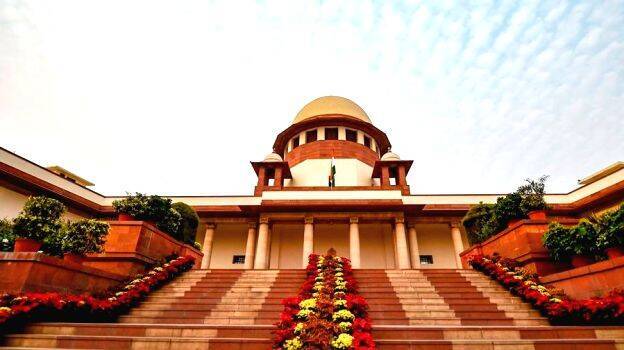

The basis of democracy and the Constitution is to provide equal social justice to all citizens. If it is legally overturned, the very nature and structure of the Constitution will be destroyed. Unfortunately, the majority judgment of the Supreme Court on the issue of economic reservation has become the gunpowder for it.
Upper castes have been exempted from caste reservation as caste was adopted as the criterion. The Constitution ensured reservation based on the conviction that there is no other way than reservation to uplift the backward and other classes, who have been kept away from the upper and lower levels of power structures for centuries. It does not create two classes of citizens. The sole aim of the reservation is to give an opportunity to the lower castes to catch up with the dominating upper castes in all spheres of life. However, Economic reservation is a completely different concept from that. Here, economic backwardness is taken as the criterion. All five judges of the five-judge constitution bench agreed with the implementation of economic reservation. The backward classes also do not oppose this. However, they do oppose considering caste when economic backwardness is taken as the criterion. This is exactly what Chief Justice U U Lalit, who recorded the dissent, and Justice Bhatt, who wrote the dissenting judgment, pointed out. The experience of economic disadvantage is the same for people belonging to both the upper caste and the lower caste. The word 'economy' has no caste and no religion. It is an unfortunate situation. Inserting caste into it will create two types of citizens. So giving 10 percent reservation to all the economically backward is fair from any point of view except the narrow angle of caste. In the dissenting judgment, Justice Bhatt has made it clear that there are more number of economically disadvantaged people in backward and other classes and their exclusion is against the basic nature of the Constitution. The economic backwardness of individuals is the criterion for reservation. But it is said that reserved caste persons are not entitled to it. The dissenting judgment clearly states that this is against the principle of equity. However, the 103rd Constitutional Amendment Act, which granted ten percent reservation in education and government jobs to the economically backward classes, became valid as it was upheld by Justices Dinesh Maheshwari, Bela M Trivedi and JB Pardiwala. It is saddening to say that this will lead to far-reaching consequences and relegates society to its old form through social inequality. But that is the truth. This verdict is just the beginning. The upper castes are going to enjoy the benefit of this in many ways. If the government gives a special scholarship to 10 percent of upper-caste students who are going to study abroad, there will be no shortage of applicants. But if the same benefit is given to Scheduled Tribes, not even two percent will apply. There is so much social inequality in the country. Therefore, rather than legally, this is a matter for Parliament to take a scientific decision through a social census. First of all, the caste-wise list of people working in various government sectors should be published. But no government will be ready for that as the truth will get exposed. The truth is that 80 percent of employees working in most sectors belong to upper castes. If this truth comes, any court will have to judge that it is not right to give reservations to them again, taking into account the scientific calculation and the level of social condition. However, all administrators continue to hide it and deceive the backward and Dalit sections by creating other smokescreens. Democracy is said to be the rule of the people by the people for the people. However, people belonging to lower castes very well know through their experience that in effect, the rule of the few for the few is going on here. This has been highlighted by the stand of the government, which amended the Constitution, and the majority judgment of the Supreme Court, which upheld the amendment.
Through this judgment, the provision of reservation, which is to be used for the good of society, has become a knife to harm the basic structure of the Constitution. This is a judgment that undermines the essentially representative nature of democracy in government service and educational institutions. The fact that the Chief Justice dissented against it remains a silver lining. One should not forget that the Supreme Court itself has a history to tell, where dissenting judgments went on to become laws in future. Prominent legal expert Dr Mohan Gopal, who argued in the Supreme Court against the exclusion of backward and other classes from the economic reservation, has said that he will file a review petition. The Supreme Court has been in operation for 72 years. There hasn't been a single Ezhava judge in the supreme court thus far. This is almost the case with all major constitutional institutions. However, the administration and the court are trying to bring more people from the upper castes to such institutions.
As the Guru said, people from backward and other classes should not wait anymore to begin the struggle to know and inform, if not to argue and win.